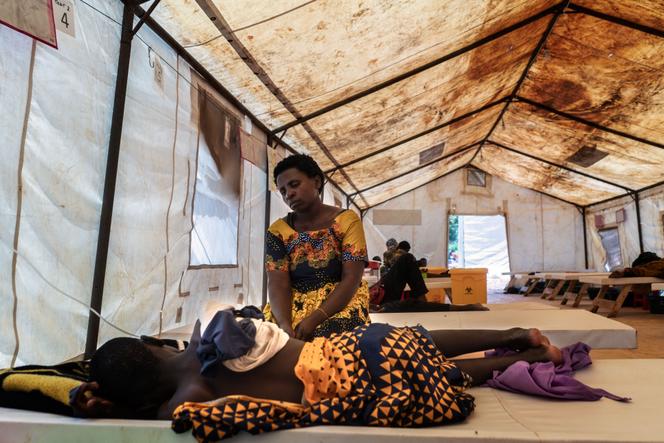


The upsurge is spectacular. The number of cholera cases notified to the World Health Organization (WHO) more than doubled worldwide between 2021 and 2022, rising from 223,000 to 472,000, according to a WHO report published on Friday, September 22. More countries reported cases – 44 in 2022, compared with 35 the previous year. Major outbreaks affected countries that had long been spared, such as Lebanon and Syria, which had not recorded a case in over a decade. Epidemics claimed 0.5% of lives, with some 2,300 deaths recorded.
Seven nations reported "very large outbreaks," exceeding 10,000 cases: Afghanistan, Cameroon, Democratic Republic of Congo, Malawi, Nigeria, Syria and Somalia. Afghanistan reported the highest number of cases (over 280,000), followed by Syria, with over 70,000.
However, WHO is calling for data "to be interpreted with caution." According to the organization, researchers estimate that between 1.3 million and 4 million people contract cholera each year and that between 21,000 and 143,000 of them die. The discrepancy between official figures and projections is due to major gaps in diagnosis, with capacities varying widely from country to country.
Cholera is a bacterial infection caused by the ingestion of water or food contaminated with feces and whose symptoms are essentially diarrhea and vomiting. It is often confused with other diseases, and vice versa. Not to mention the fact that "a certain number of people have few or no symptoms," according to John Johnson, medical specialist for vaccination and epidemic response at Doctors Without Borders.
Under these conditions, "increasing laboratory confirmation of suspected cholera cases remains a priority," according to WHO. "Quality data requires first and foremost the ability to isolate this unusual bacterium from stools, and then to confirm its identification using classical bacteriology or even genomic techniques," explained Professor François-Xavier Weill, head of the Institut Pasteur's enteric pathogens laboratory. According to Weill, expertise has made considerable progress in recent decades but remains highly heterogeneous throughout the world. He noted that neither Yemen nor Haiti has reported any cases to WHO, despite the fact that these two countries are suffering the full brunt of cholera.
Despite the relative quality of the data, "we know how to interpret the figures," said Philippe Barboza, WHO team leader for cholera and epidemic diarrheal diseases. According to Barboza, beyond the absolute values, "what is extremely alarming is the trend." The absolute number of deaths had been falling for around 10 years, he noted, before a "significant resurgence in 2021." He added that "this rise is set to continue, and will be worse in 2023."
You have 45.56% of this article left to read. The rest is for subscribers only.
